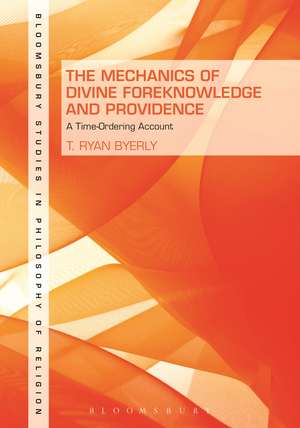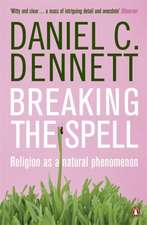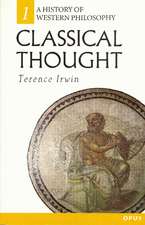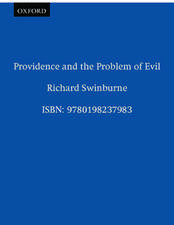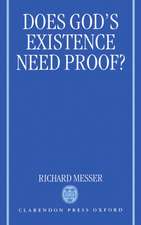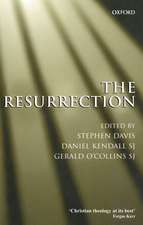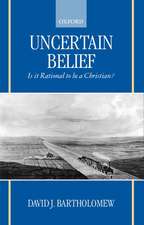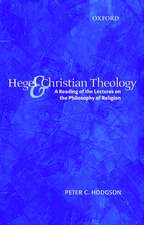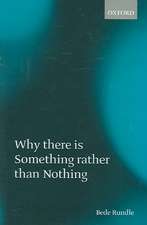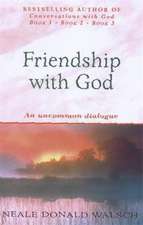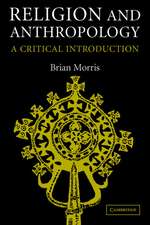The Mechanics of Divine Foreknowledge and Providence: A Time-Ordering Account: Bloomsbury Studies in Philosophy of Religion
Autor Dr. T. Ryan Byerlyen Limba Engleză Paperback – 24 feb 2016
| Toate formatele și edițiile | Preț | Express |
|---|---|---|
| Paperback (1) | 254.19 lei 6-8 săpt. | |
| Bloomsbury Publishing – 24 feb 2016 | 254.19 lei 6-8 săpt. | |
| Hardback (1) | 653.61 lei 6-8 săpt. | |
| Bloomsbury Publishing – 22 oct 2014 | 653.61 lei 6-8 săpt. |
Din seria Bloomsbury Studies in Philosophy of Religion
- 30%
 Preț: 527.07 lei
Preț: 527.07 lei - 22%
 Preț: 224.66 lei
Preț: 224.66 lei - 19%
 Preț: 191.38 lei
Preț: 191.38 lei - 22%
 Preț: 232.90 lei
Preț: 232.90 lei - 12%
 Preț: 234.38 lei
Preț: 234.38 lei -
 Preț: 258.42 lei
Preț: 258.42 lei - 13%
 Preț: 255.84 lei
Preț: 255.84 lei - 13%
 Preț: 224.58 lei
Preț: 224.58 lei - 31%
 Preț: 830.20 lei
Preț: 830.20 lei - 22%
 Preț: 257.50 lei
Preț: 257.50 lei -
 Preț: 257.03 lei
Preț: 257.03 lei -
 Preț: 259.42 lei
Preț: 259.42 lei -
 Preț: 254.93 lei
Preț: 254.93 lei - 21%
 Preț: 216.52 lei
Preț: 216.52 lei - 23%
 Preț: 190.50 lei
Preț: 190.50 lei - 23%
 Preț: 192.30 lei
Preț: 192.30 lei - 23%
 Preț: 191.22 lei
Preț: 191.22 lei
Preț: 254.19 lei
Preț vechi: 293.67 lei
-13% Nou
Puncte Express: 381
Preț estimativ în valută:
48.64€ • 50.93$ • 40.34£
48.64€ • 50.93$ • 40.34£
Carte tipărită la comandă
Livrare economică 10-24 aprilie
Preluare comenzi: 021 569.72.76
Specificații
ISBN-13: 9781501318269
ISBN-10: 1501318268
Pagini: 144
Dimensiuni: 152 x 229 x 25 mm
Greutate: 0.2 kg
Ediția:NIPPOD
Editura: Bloomsbury Publishing
Colecția Bloomsbury Academic
Seria Bloomsbury Studies in Philosophy of Religion
Locul publicării:New York, United States
ISBN-10: 1501318268
Pagini: 144
Dimensiuni: 152 x 229 x 25 mm
Greutate: 0.2 kg
Ediția:NIPPOD
Editura: Bloomsbury Publishing
Colecția Bloomsbury Academic
Seria Bloomsbury Studies in Philosophy of Religion
Locul publicării:New York, United States
Caracteristici
Draws out important relationships between topics in the philosophy of time and the freedom-foreknowledge debate
Notă biografică
T. Ryan Byerly is Assistant Professor of Philosophy, Regent University, USA.
Cuprins
AcknowledgementsIntroductionPART ONE: From the Existence of Infallible Divine Foreknowledge to Its MechanicsChapter One: The Foreknowledge ArgumentChapter Two: Foreknowledge and Explaining the Absence of FreedomChapter Three: Foreknowledge and Causal DeterminismPART TWO: A Time-Ordering Account of Foreknowledge and ProvidenceChapter Four: Time-Ordering and ForeknowledgeChapter Five: Time-Ordering and ProvidenceChapter Six: The Value and Future of the Time-Ordering StoryBibliography
Recenzii
T. Ryan Byerly offers a refreshingly original account of how divine foreknowledge and providence might be achieved. This is an important contribution to philosophical theology and metaphysics which should be studied and discussed widely in coming years.
Byerly provides an insightful overview of the argument for theological fatalism, argues (rightly, I believe) that it cannot succeed unless divine foreknowledge entails causal determinism, and proposes that God's ordering of times can account for his infallible foreknowledge while leaving human freedom intact. This is a novel approach to a well-nigh intractable problem and should command the attention of anyone with a serious interest in the dilemma of divine foreknowledge and human freedom.
Several things impress here: First, the ingenuity and clarity of the argument; second, the fact that Byerly and other analytic philosophers are engaging religious topics seriously. Even those (like me) who prefer to work in a different idiom, and those are not entirely persuaded, can be grateful for the rigor of their contributions.
Byerly provides an insightful overview of the argument for theological fatalism, argues (rightly, I believe) that it cannot succeed unless divine foreknowledge entails causal determinism, and proposes that God's ordering of times can account for his infallible foreknowledge while leaving human freedom intact. This is a novel approach to a well-nigh intractable problem and should command the attention of anyone with a serious interest in the dilemma of divine foreknowledge and human freedom.
Several things impress here: First, the ingenuity and clarity of the argument; second, the fact that Byerly and other analytic philosophers are engaging religious topics seriously. Even those (like me) who prefer to work in a different idiom, and those are not entirely persuaded, can be grateful for the rigor of their contributions.
